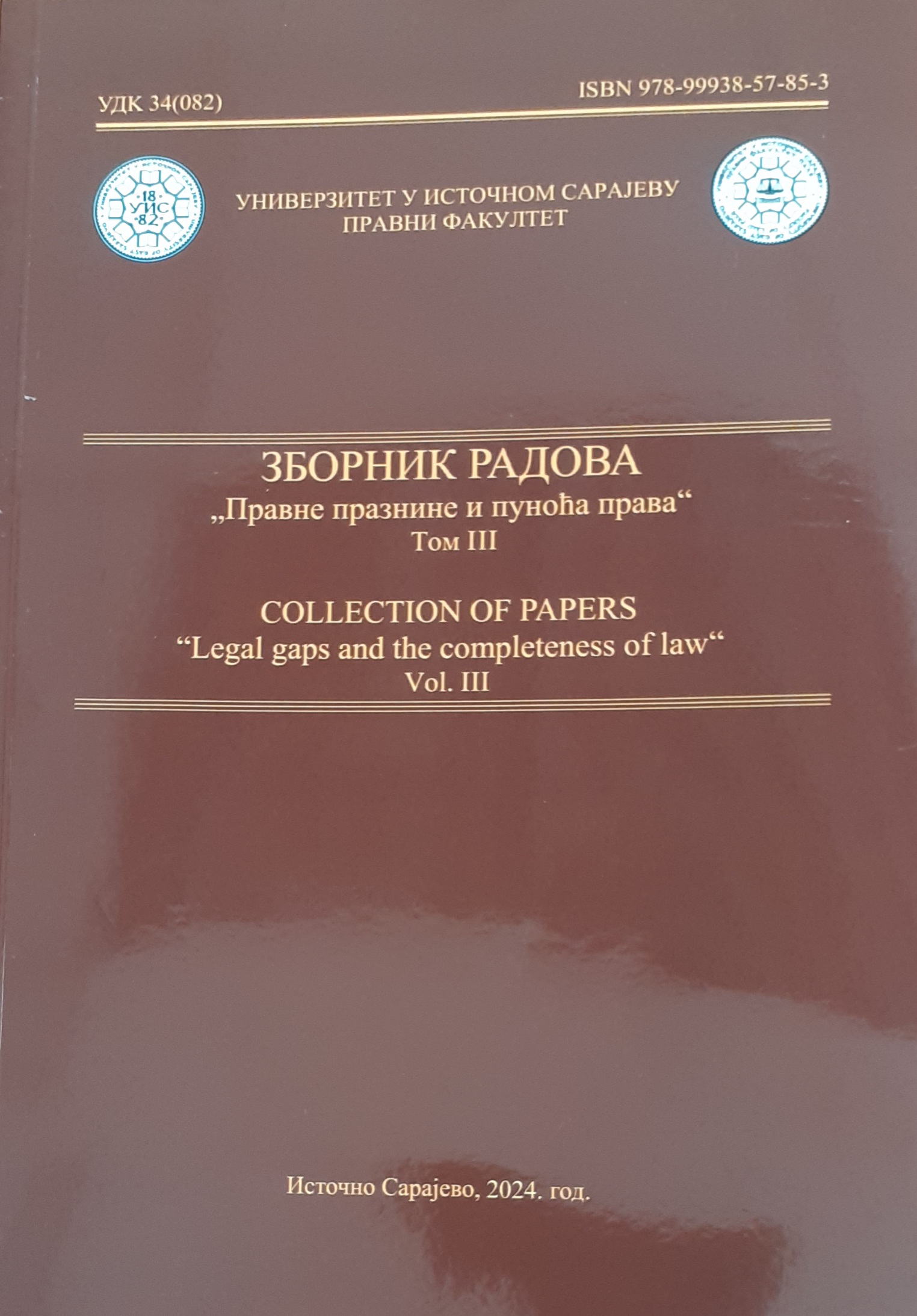Попуњавање правних празнина у судском поступку
Filling In Legal Loopholes in Judicial Proceedings
Author(s): Božana Gužvić
Subject(s): Law, Constitution, Jurisprudence
Published by: Правни факултет Универзитета у Источном Сарајеву
Keywords: Legal loophole; Creative role of the court; Principles of legal order;
Summary/Abstract: Upon the initiation of the judicial proceedings, an obligation of the court to resolve a dispute comes into existence. The court is obligated to administer the law in dispute resolution. In situations where a legal norm is clear, the court's task is to administer the legal norm to the specific situation. However, situations where the legislative body fails to provide or regulate all the relations with legal norms are possible. That should not come as a surprise because of the great dynamism of social relations that is not possible to standardize comprehensively. The primary function of the court is to resolve disputes between the parties, also in the absence of written legal norms that would regulate a certain disputed relation in a judicial proceeding. Namely, when an issue or situation that is not regulated by existing legal norms (legal loophole) arises in judicial practice, the court is obligated to compensate for the lack of written legal norms because it may not refuse to make decisions under the pretence of the existence of a legal loophole, the vagueness or incompleteness of law. Practically, in such a situation, the court is authorized to act as a legislative body and establish a rule for resolving some legally relevant issue that does not exist in the existing written norms until the legislative body recognizes the existence of the legal loophole using the experience in the judicial practice and removes the legal loophole with their legislative intervention. Otherwise, if the court resolving the dispute concludes that a certain relation is not regulated by a legal norm or that the current facts do not fall under any existing legal norm, it would deny access to justice. Such actions of the court would represent a breach of the provision of Article 6 of the European Convention for the Protection of Human Rights and Fundamental Freedoms guaranteeing the right to a fair trial. Of course, when filling in legal loopholes by court decisions, care must be taken not to simultaneously violate the principles on which the legal order is based and to prevent such activity of the court from growing into the self-will of judges through failure to accept the same legal principle when resolving another identical disputed social relation.
Book: Зборник радова "Правне празнине и пуноћа права" Том III
- Page Range: 239-250
- Page Count: 12
- Publication Year: 2024
- Language: Serbian
- Content File-PDF

